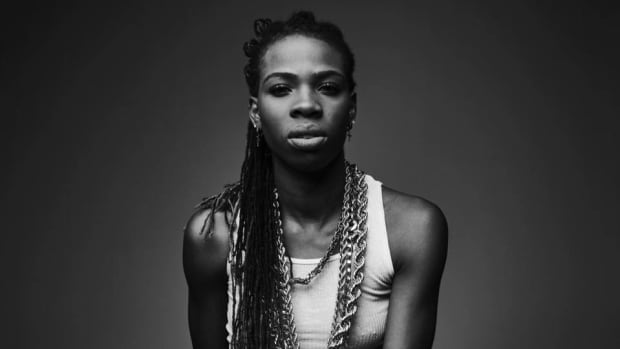Woman alleges former N.W.T. premier sexually harassed her in lawsuit against foundation | CBC News

A woman who was enrolled in a prestigious scholarship program alleges that former Northwest Territories premier Stephen Kakfwi sexually harassed her while serving as her mentor.
Cherry Smiley makes the allegation in a lawsuit she filed against the Pierre Elliott Trudeau Foundation, which runs the program. Smiley is seeking $1.25 million in damages, plus costs. Kakfwi himself is not being sued.
The foundation has yet to respond to the lawsuit, first reported by Radio-Canada, which was filed in the Supreme Court of British Columbia on May 19. None of the allegations in the claim have been proven in court.
In her statement of claim Smiley said that during the second year of the program, she was informed that Kakfwi would be her mentor for 2018. Smiley said the foundation organized a gathering in St. John’s for early June of that year to allow scholars to meet and spend time with their mentors.
Smiley said she and Kakfwi had dinner together at a restaurant the first evening. At the end of dinner, he invited her to visit him at his home in Yellowknife. Smiley said in her lawsuit the offer made her feel uncomfortable.
After dinner the two shared a cab back to the hotel where they were staying, according to the statement of claim. As they were saying good night in the empty hotel lobby, Smiley said Kakfwi came close to her and grabbed her upper arm and squeezed it. He held her arm, rubbing and massaging it, until she panicked and pulled away.
She said Kakfwi grabbed her arm in the same way at the end of the four-day gathering and repeated his invitation to visit her in Yellowknife, saying she could stay in his spare bedroom.
Neither Smiley nor Kakfwi responded to calls and messages from CBC North.
The foundation says it approached the allegation with “deep concern.”
In a statement signed by the vice-chair of the board of directors, Dyane Adam, the foundation says it “supported” Smiley, covered her legal fees and arranged “meetings with her, her counselor, and her supporting companions.”
Smiley “subsequently made the decision not to file a formal complaint leading to an independent investigation,” the statement said.
The foundation also said Smiley chose not to make a complaint to an external ombudsperson. It said it will not make any further comment on the case.
‘Shaken, distressed and upset’
In her statement of claim, Smiley said the interactions with Kakfwi in St. John’s left her “very shaken, distressed and upset.” She said she felt particularly frightened and intimidated because she needed a favourable reference letter from Kakfwi to receive scholarship funding for the following year.
Smiley was working on a doctorate degree at Concordia University in Montreal focusing on male violence against Indigenous women and girls. She said she relied on the funding from the foundation to pay her living expenses and “lived in constant fear” that it would be cut off.
Smiley said four days after the conference, she told the incoming president of the foundation about the incidents with Kakfwi. According to the claim, Smiley subsequently detailed the incidents in an email and said she was not comfortable having Kakfwi as her mentor.
In her lawsuit, Smiley said that, in an emailed response, the incoming president said “these incidents should never have taken place and I am sorry you had to deal with them.”
But Smiley said that was one of the few examples of support she got from the foundation as she tried to get it to address her complaint.
In the statement of claim, Smiley said that, in a phone call days later, the foundation’s CEO accused her of “blowing things out of proportion,” and said it was clear to her the CEO did not believe her. She said the foundation later told her Kakfwi would no longer be her mentor and pressured her to sign a non-disclosure agreement that would have prevented her from talking about the matter.
‘Highly sensitive’ information
Smiley said in her court filing that foundation officials told her it was in her best interest not to talk about it, suggesting that if she did, Kakfwi could sue her and he could accuse the foundation of racism. Kakfwi is Dene.
Smiley said over the next year she slipped deeper into “depression, anxiety and fear” as she experienced delays in getting scholarship funds and was accused by the foundation of having “addictions issues.”
The retaliation against her peaked last December, Smiley alleges in her statement of claim, when the chairman of the foundation’s board of directors attacked her in an email that also disclosed “highly sensitive and confidential information pertaining to [Smiley] and the handling of her sexual harassment complaint against Mr. Kakfwi.”
Smiley is asking the court to order the foundation to pay her $500,000 in damages for breach of contract, $500,000 for breach of confidence and $250,000 in punitive damages.
The Pierre Elliott Trudeau Foundation defines itself as an independent charity without political affiliation. It was created in 2001 to pay tribute to the former prime minister. The organization is piloting a leadership and mentoring program.
Prime Minister Justin Trudeau is no longer involved with the foundation. However, he had participated since its creation in 2001 until 2014. His brother, Alexandre Trudeau, represents their father’s estate but does not participate in its day-to-day activities. The federal government invested $125 million to fund the foundation’s core operations in 2002.
Disclosure: Stephen Kakfwi is married to Marie Wilson, who is a member of the board of directors of CBC/Radio-Canada.




